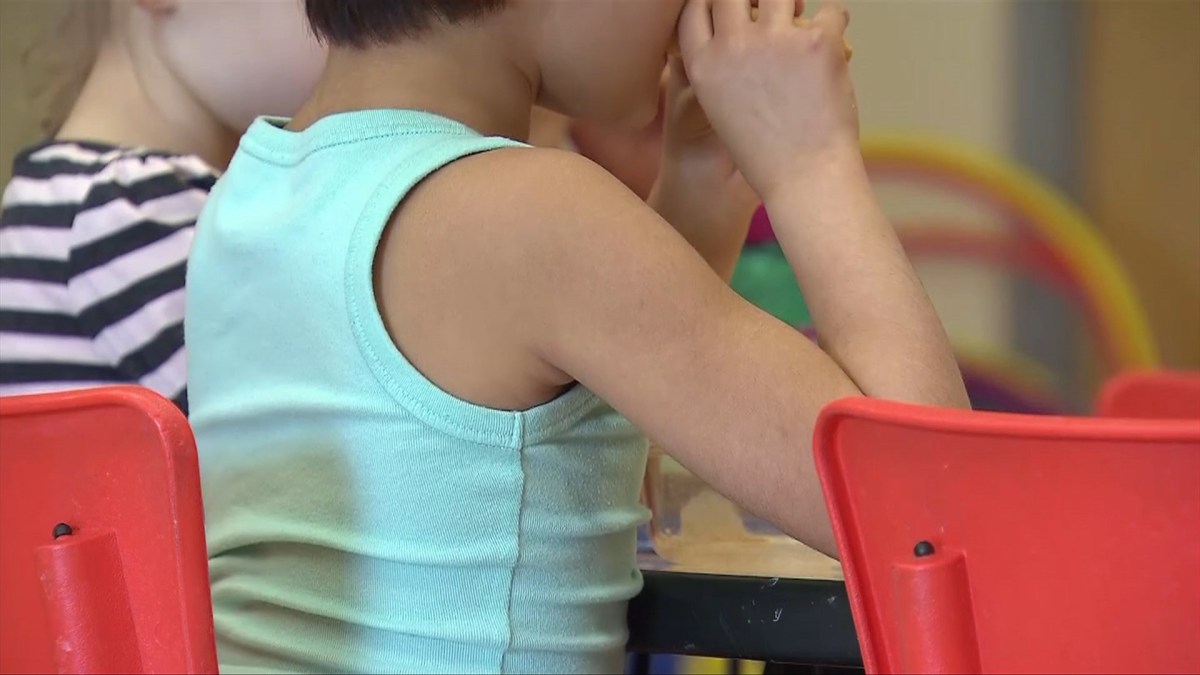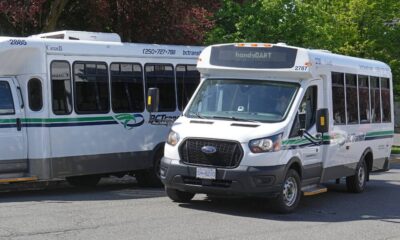Education
B.C. Government Proposes Childcare Expansion in Schools

The British Columbia government has introduced legislation aimed at increasing childcare options within school grounds. If passed, this new law would allow schools to host daycare facilities for infants and toddlers, while also expanding before-and-after school care to include periods during Christmas and summer breaks.
At a press conference on March 5, 2024, B.C. Premier David Eby expressed optimism about the potential impact of the legislation, stating, “Today is what I hope will be life-changing for many parents.” The move comes in response to ongoing challenges faced by new parents in the province, including long waitlists, high costs, and staffing shortages. Currently, only a limited number of families can access the province’s $10-a-Day childcare program.
Advocates for childcare have welcomed the announcement, viewing it as a positive step towards fulfilling government commitments. Sharon Gregson, a spokesperson for the $10-a-Day Child Care campaign, remarked, “After a year or two of stalling on progress for childcare, to have this announcement today is really good news.” The campaign works closely with the Coalition of Child Care Advocates of BC to promote affordable childcare options.
Local school boards will ultimately decide whether to implement daycare facilities, prompting questions about the affordability and staffing of these programs. Gregson expressed concern about whether the newly created daycare spaces would also adhere to the $10-a-Day model. “If they’re publicly funded and on public school sites, we think they should be $10-a-Day programs,” she stated. She emphasized the need for qualified early childhood educators to work with younger children.
Details regarding staffing for the expanded before-and-after school care remain vague. Premier Eby suggested that part-time support workers, such as education assistants (EAs), could transition into full-time roles. He noted the involvement of CUPE, the union representing many school support workers, in advocating for the initiative. “CUPE came forward to say that not only are the buildings there, but so are the workers who would like to move from part-time jobs into full-time jobs,” Eby added.
The expansion of daycare services may also require school boards to construct new facilities, particularly in areas where space is limited. Gregson pointed out that “at some schools and school districts, space is at a premium,” indicating the potential need for modular buildings on school sites.
While the proposal has garnered support, it must undergo readings, debate, and voting before any changes can be implemented. As the discussion continues, the government and advocates remain hopeful that this legislation will lead to more accessible childcare options for families across British Columbia.
-

 Politics4 weeks ago
Politics4 weeks agoSecwepemc First Nation Seeks Aboriginal Title Over Kamloops Area
-

 World5 months ago
World5 months agoScientists Unearth Ancient Antarctic Ice to Unlock Climate Secrets
-

 Entertainment5 months ago
Entertainment5 months agoTrump and McCormick to Announce $70 Billion Energy Investments
-

 Science5 months ago
Science5 months agoFour Astronauts Return to Earth After International Space Station Mission
-

 Lifestyle5 months ago
Lifestyle5 months agoTransLink Launches Food Truck Program to Boost Revenue in Vancouver
-

 Technology3 months ago
Technology3 months agoApple Notes Enhances Functionality with Markdown Support in macOS 26
-

 Lifestyle3 months ago
Lifestyle3 months agoManitoba’s Burger Champion Shines Again Amid Dining Innovations
-

 Top Stories2 months ago
Top Stories2 months agoUrgent Update: Fatal Crash on Highway 99 Claims Life of Pitt Meadows Man
-

 Politics4 months ago
Politics4 months agoUkrainian Tennis Star Elina Svitolina Faces Death Threats Online
-

 Sports5 months ago
Sports5 months agoSearch Underway for Missing Hunter Amid Hokkaido Bear Emergency
-

 Politics5 months ago
Politics5 months agoCarney Engages First Nations Leaders at Development Law Summit
-

 Technology5 months ago
Technology5 months agoFrosthaven Launches Early Access on July 31, 2025




















